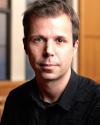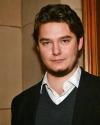The UW Composition program presents an evening of works by student composers Eddie Mospan, Alex Ryan, Ryan Baker, and Nicholas Mendonsa, plus an improv session with UW composers and friends.
Program
minimal counterpoint — Eddie Mospan
Hanu Nahm, violin
Mica Weiland, viola
Eddie Mospan, contrabass
Run for It — Alex Ryan
Justin Zeitlinger, violin
Cory Chen, cello
Kaisho Barnhill, piano
untitled — Ryan Baker
for fixed media
imaginary webbing of the mouth — Nicholas Mendonsa
Nicholas Mendonsa, electric guitar
Justin Zeitlinger, viola
Eddie Mospan, contrabass
Kaisho Barnhill, piano
Improv Session — featuring UW composers & friends
Program Notes
maginary webbing of the mouth -- Nicholas Mendonsa
Early in my time in this program I’d aimed for high concept meta ideas, with varying degrees of (un)success. Ironically, the bigger the idea, the smaller the performing forces I worked with.
During a composition lesson last spring I’d started scheming a piece for strings, with the suggestion of adding piano. Starting to work with my initial materials (a relatively scalar set of 6 pitches) I suddenly wondered, “why the hell am I writing for strings?” The idea I had at the time struck me as vapid, with an underlying assumption of obligation.
My gym session listening has lately often comprised of works by, among others, Alfred Schnittke, Giacinto Scelsi, and the university’s own Joël-François Durand (no kidding. I love wailing on my pecs to this stuff). Initially unbeknownst to me, over time I’d moved beyond my impulses towards meta-conceptuality and reengaged my fundamental love of sound. Being a synesthete I decided merely to generate my own sensational side effects, and since I didn’t care for the harmonic/melodic ideas of the aforementioned endeavor, I decided I didn’t need scale or melody. Inspired by Scelsi and Durand (and enjoying the oral sensations the sonic textures triggered) I reduced the harmonic material to a single note, microtonally varied while weaving a degree measured chaos through clashing rhythmic subdivisions of attack and movement, while the piano offers a (very) basic nod to spectralist philosophy while satiating my love of apocalyptic low end. Now I’d found my necessity to write for strings.
This is, in effect, my reset.
Director Biographies

Huck Hodge is professor and chair of the composition program in the school of music. A composer of “harmonically fresh work", "full of both sparkle and thunder” (New York Times), his music has been praised for its “immediate impact” (Chicago Tribune), its "clever, attractive, streamlined" qualities (NRC Handelsblad, Amsterdam), and its ability to "conjure up worlds of musical magic” with “power and charisma" (Gramophone Magazine, London). There is a dramatic interplay of color, light, and darkness in his music, which emerges from an uncanny blending of pure and dissonant harmonies, widely spaced orchestrations and vast, diffuse timbres.
Hodge is the recipient of many prestigious awards and distinctions. Among these is the Charles Ives Living, the largest music award conferred by the American Academy of Arts and Letters. His other major awards include the Rome Prize (Luciano Berio Fellowship), the Gaudeamus Prize, a Guggenheim Fellowship, commissions from the Koussevitzky Foundation in the Library of Congress, the Fromm Foundation at Harvard University, the American Composers Forum (JFund), the Barlow Endowment, Music at the Anthology (MATA), the American Academy in Rome, Muziek Centrum Nederland, Musik der Jahrhunderte, and the National Theater and Concert Hall of Taiwan, in addition to multiple grants and awards from ASCAP, the Bogliasco Foundation, Copland House, the Deutscher Akademischer Austauschdienst (DAAD), MacDowell, New Music USA, the Siemens Musikstiftung, and Yaddo.
His music has been performed at Carnegie Hall, Lincoln Center and at numerous major festivals — the New York Philharmonic Biennial, Berliner Festspiele, Gaudeamus Muziekweek, Shanghai New Music Week (上海当代音乐周), ISCM World Music Days, and many others in over twenty countries on six continents. Other performances include those by members of the Berlin Philharmonic and Ensemble Modern, the ASKO / Schönberg Ensemble, the Seattle Symphony, and the Orchestra of the League of Composers. His chamber music has been premiered, performed and recorded by a long list of soloists and ensembles such as the Daedalus, JACK, Mivos, and Pacifica string quartets, the Adapter, Aleph, Argento, Dal Niente, Divertimento, Insomnio, SurPlus, and Talea ensembles, and his colleagues David Gordon, Donna Shin, Cristina Valdés, Cuong Vu, and Bonnie Whiting. His published music is distributed by Alexander Street Press (US) and Babel Scores (France). Recordings of his music appear on the New World and Albany record labels and have been featured in numerous national and international broadcasts.
Before joining the University of Washington, Hodge taught composition at Columbia University, where he earned his M.A. and D.M.A. studying with Fred Lerdahl, George Lewis, and Tristan Murail. Prior to this, he studied composition, theory, and new media at the Staatliche Hochschule für Musik und Darstellende Kunst in Stuttgart, Germany, with Marco Stroppa and Georg Wötzer as well as music, German literature and philosophy at the University of Oregon and the Universität Stuttgart. He has been a visiting professor/invited lecturer on music and aesthetics at a variety of institutions including the University of Chicago, CNMAT/UC Berkeley, UCSD, Columbia University, Eastman School of Music, Manhattan School of Music, NYU, and the Universität der Künste in Berlin, and he served for three years as the director of the Merriman Family Young Composers Workshop at the Seattle Symphony.

Yiğit Kolat’s music draws inspirations and expressions from a wide array of topics ranging from bytebeats to the application and ethics of artificial intelligence in music. The complicated political and social landscapes of his native Turkey and adopted United States often inform his diverse output. His works, described as “touching and convincing...a multi-sensory universe,” (K. Saariaho) have been recognized by a prestigious array of international organizations, including the Tōru Takemitsu Composition Award, the Queen Elisabeth Competition, Bogliasco Foundation, and the Concours International de Composition Henri Dutilleux. His music has been featured throughout the United States, Europe, and Asia by leading ensembles and soloists, among them the Tokyo Philharmonic, Solistes de L’Orchestre de Tours, The Nieuw Ensemble, Talea Ensemble, Argento New Music Project, Seattle Modern Orchestra, Ryoko Aoki, Donatienne Michel-Dansac, Bonnie Whiting, and Peter Sheppard-Skaerved. His music has been broadcast by the Japan Broadcasting Corporation (NHK) and Turkish Radio Television (TRT).
He has presented his research at conferences such as Conference on AI Music Creativity (University of Oxford, Vrije Universiteit Brussels), Spectralisms International Conference (IRCAM), and Reëmbodied Sound Symposium (Columbia University). Kolat earned his Doctorate of Musical Arts at the University of Washington, studying with Joël-François Durand.
